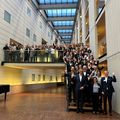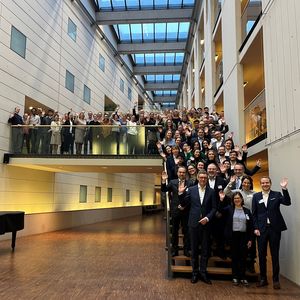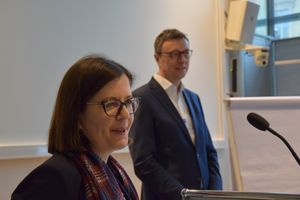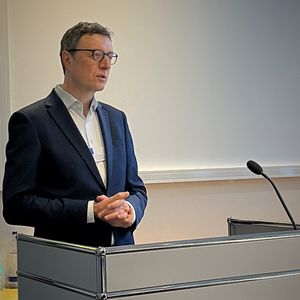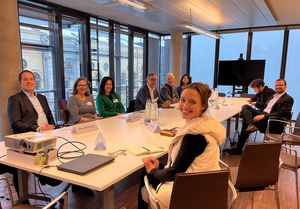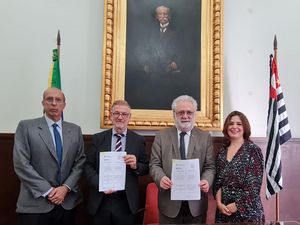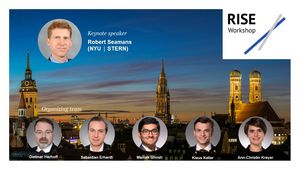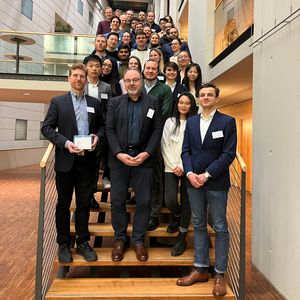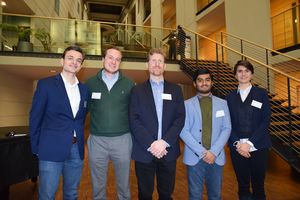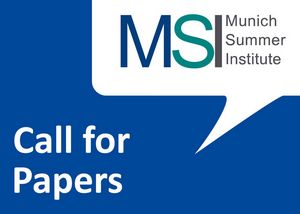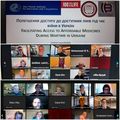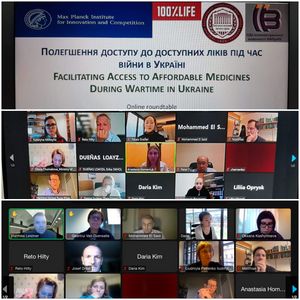At its meeting on 23 June 2022 in Berlin, the Max Planck Society’s Senate appointed Patrick Cramer as new President-elect of the Max Planck Society for the term of office from 2023 to 2029. The 54-year-old chemist and molecular biologist currently is Director of the Max Planck Institute for Multidisciplinary Sciences in Göttingen. He will take over the role from Martin Stratmann in June 2023 in Göttingen, where the MPG was founded, on the occasion of the 75th anniversary of the Max Planck Society. Stratmann was at the helm of the Max Planck Society for nine years.
By the time he takes office as president of the Max Planck Society in June, Patrick Cramer wants to have visited all 86 Max Planck Institutes. A lofty goal that is within reach: Since July 2022, Cramer has visited nearly two-thirds of the Institutes. Our Institute was number 54 on his list. He was accompanied by Dr. Katja Ketterle, Head of the Institutes Department of the Max Planck Society, and Dr. Sabine Gieszinger, Institute Support.
Thus, on the morning of 24 January, after a joint photo session, the entire Institute gathered for a brief address by the President-elect, followed by a question and answer session.
Cramer spoke of a triad of core values of the Max Planck Society. First, he mentioned excellence, although pure scientific excellence would not suffice. It is also about the personalities and people around whom the Institutes of the Max Planck Society are built. The so-called Harnack principle is an essential part of the Max Planck Society’s strategy and crucial for attracting other outstanding minds. It is equally important to communicate and explain the work of top researchers to the public. Finally, the third core value he cited was the sense of unity among all employees of the Max Planck Society.
“We all are Max Planck,” Cramer emphasized in an open exchange with the Institute’s employees. It is the task of all employees to contribute to the goals of the Max Planck Society. It is equally important that the ideas of all members of the “Max Planck Family” are heard. The President-elect showed that he was open to the wishes, questions and suggestions of everyone.
He also answered personal questions. Just three years ago, he said, he could not have imagined that he might put his own research on hold in favor of his new responsibilities. Cramer has been director of the Göttingen Institute since 2014; before that, he was professor of biochemistry at LMU Munich and director of the Munich Gene Centre.
Cramer has made significant contributions to the development of life sciences, both through his own research and by mentoring and promoting young scientists. He solved the three-dimensional structure of one of the largest enzymes in the nucleus, RNA polymerase. This work enabled his team to unravel the mechanisms of gene transcription. Gene transcription is the process by which living cells make copies of their genes, which then serve as blueprints for the production of proteins. Shortly after the outbreak of the Covid-19 pandemic, Cramer and his group visualized how the coronavirus copies its genetic material. The team also showed how the Covid-19 drugs Remdesivir and Molnupiravir interfere with this copying process.
But now, Cramer said, he embraces the challenge of the new office and is convinced that it is important to help shape the future of science and bring new knowledge into the world for the benefit of all people.
In the further course of the visit, a group discussion was held with representatives of the researchers, IT, science communication and equal opportunity officers, in addition to discussions with the directors. Finally, a poster presentation of the Institute’s research highlights took place in a smaller circle.
Cramer was impressed by the social relevance of the research conducted at the Institute, highlighting in particular research on the transition to a sustainable economy, support for emerging economies, or on AI and the protection of private data. Katja Ketterle, head of the Institutes Department, emphasized how inspiring the brief insights into the research were and that the Institute also had a great team in other areas, making it one of the particularly fine small Institutes within the large Max Planck Society.
We thank you for your visit and look forward to further exchange!

![[Bitte nach "english" übersetzen:] Cover of the CDTM Trend Report “Tackling Climate Change in the AI Era”](/fileadmin/_processed_/9/c/csm_Trend-Report_Climate_Change_245bbf9de3.png)
![[Bitte nach "english" übersetzen:] Cover of the CDTM Trend Report “Tackling Climate Change in the AI Era”](/fileadmin/_processed_/9/c/csm_Trend-Report_Climate_Change_39e1ad939d.png)
